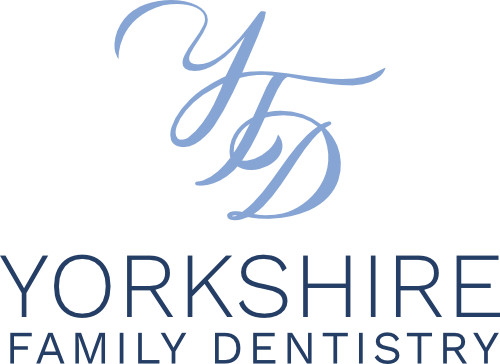5 Oral Care Tips Before Your Next Visit to a Dentist in Yorktown
To say that oral health is important would be an understatement. As an adult, you won’t get second chances on your teeth. Learning how to take proper care of them will ensure that you can preserve your smile for a lifetime.
Learn from the following oral care tips and keep your entire mouth protected in between visits to your dentist. Our local dentists in yorktown, va at Yorkshire Family Dentistry serving Yorkshire, Newport News & Hampton Roads, take great pride in making sure each and every telephone call, visit and procedure is as comfortable and helpful as possible. We also want to make sure you take good care of your teeth when you are at home too.
Take Care of Your Toothbrush
Special covers are not necessary to keep your toothbrush clean and free of bacteria. The plastics, rubbers, and nylon materials used on modern toothbrushes can help to inhibit bacterial growth, however, you’ll need to take some practical steps to protect your health. Avoid using an unventilated toothbrush cover, as this could actually help bacteria to multiply. Rinse your toothbrush thoroughly in clean water after each use and allow it to dry completely. A hanging toothbrush holder is recommended.
Choose a Brush that Reaches Your Molars
Size is critical when it comes to toothbrush selection. Your toothbrush should be small enough to reach the molars in the back of your mouth. A brush that’s too big will result in food and plaque getting trapped in your back teeth. A small or medium sized toothbrush is ideal for most adults. Children’s toothbrushes should have small heads.
Change Your Toothbrush Regularly
How long is too long when it comes to changing your toothbrush? According to dental professionals, you should change your brush at least every three months. Toothbrushes wear down with frequent use, making them less effective at removing plaque and embedded food around teeth and gums. You’ll find that as your brush gets older, the bristles begin to separate and bend outwards away from the head. Change your toothbrush immediately if you notice this before three months is up.
Follow the Correct Brushing Technique
Even if you brush regularly, you might not be following the right technique to ensure a thorough clean.
- Your toothbrush should be placed at a 45-degree angle to your guns.
- Move in tooth-wide strokes, gently brushing back and forth.
- Brush all surfaces of your teeth, including outer, inner, and chewing surfaces.
- To clean behind your front teeth, hold your brush vertically, using up and down strokes.
You should brush for two minutes, distributing the time evenly across all of your teeth.
Use a Tongue Scraper
Bacteria can develop on your tongue, compromising your oral health. This bacteria can also cause bad breath. Modern toothbrushes usually come with rubberized scraper heads. Check your toothbrush on the opposite side of the bristles. If you see grooves and bumps, then it has been designed for tongue cleaning.
Brush your tongue gently after cleaning your teeth. This will remove bacteria and provide fresher breath.
Treat Bruxism Early
Bruxism is the name for a condition where excessive jaw clenching or teeth grinding takes place. Up to 31% of the general population can suffer from this condition. It causes damage to the chewing surfaces of teeth and can be particularly damaging to existing fillings and crowns. Special dental guards can be fitted to prevent problems related to bruxism.
A little Effort with Your Dental Health goes a Long Way
Whether it’s remembering to floss or cutting out risky behaviors or poor food choices, you can reduce the likelihood of cavities and other dental problems. Keep these tips in mind and enjoy a healthy smile without pain and discomfort.
Source: 11 Best Practices for Healthy Teeth (healthline.com)
